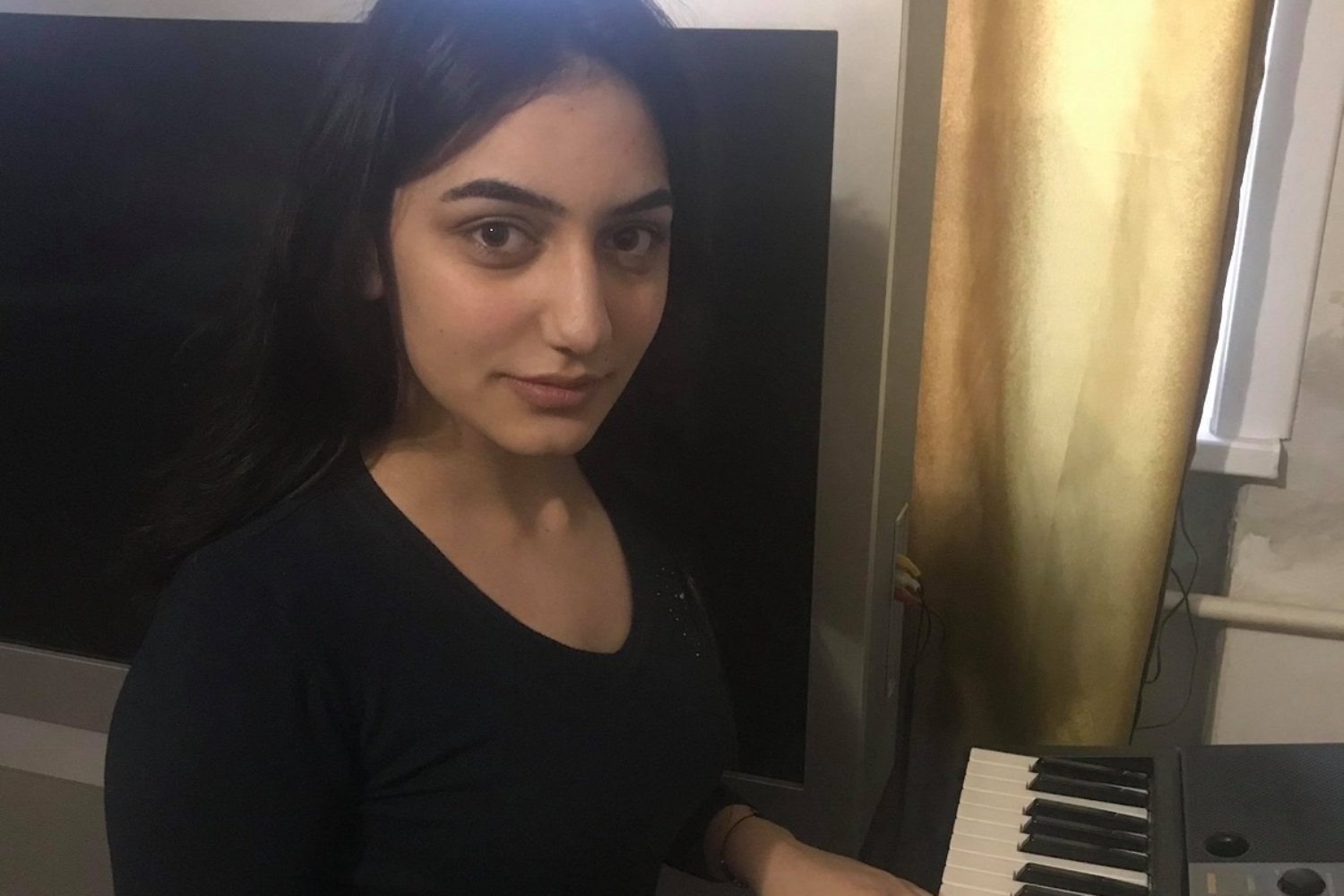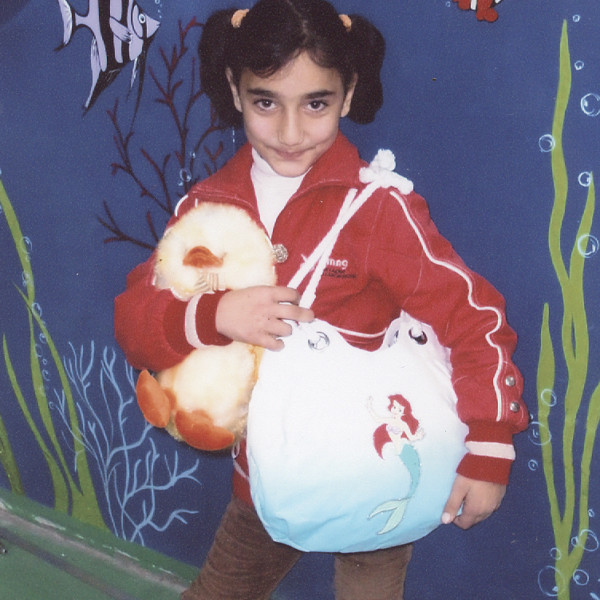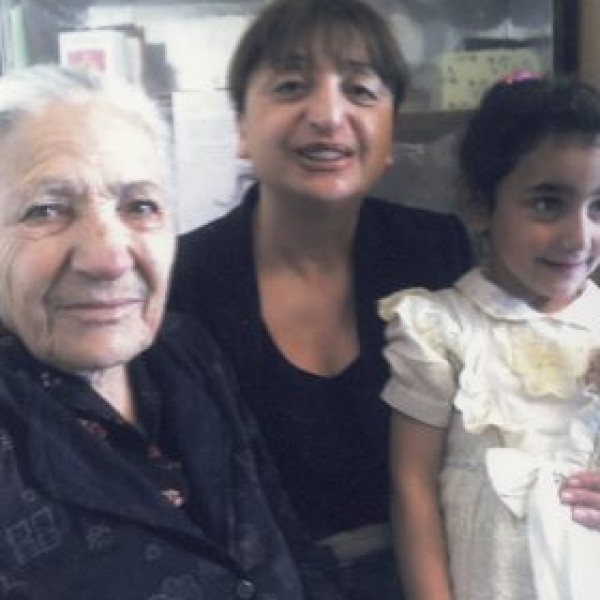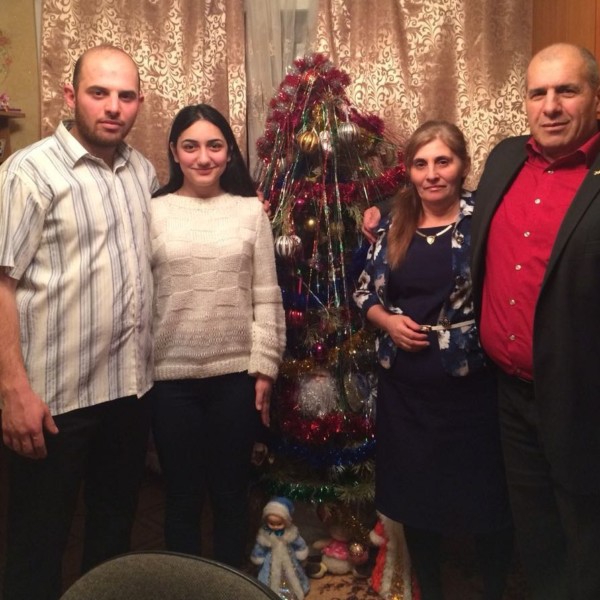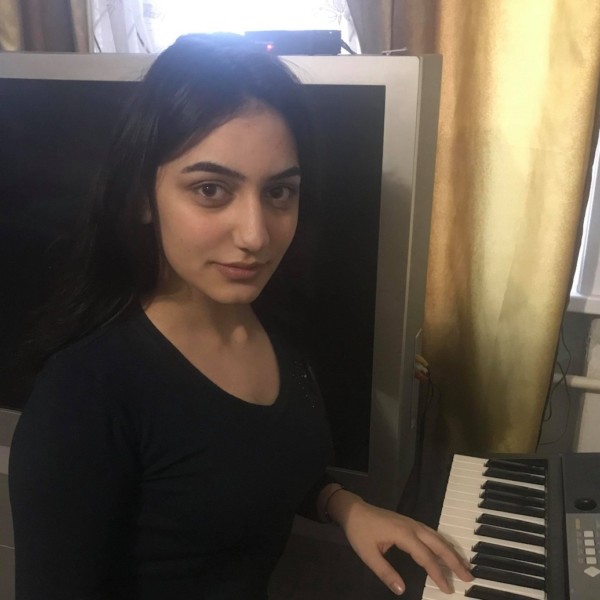It was December 26, 2002. It was one of the rare winters when the temperature in Yerevan was -4°F. The volunteers of “Go and See…” Social Ministry team were in a building that was called “Robotics technicians’ hostel”. This former hostel was now half-ruined, and some homeless people divided it between one another trying to create something that reminded the comfort of a home. Almost all who dwelled there were extremely poor.
That half-ruined building was located in the Administrative District of Malatia-Sebastia in Yerevan, and the District Council sent us a special letter with a request of giving aid to the children that lived there. “Go and See” Social Ministry organized a big New Year event, and our volunteers, going from door to door, invited the children to come. Knocking at another door, they received no response, but since the door was half-open, they went in. Once in the room, they saw a wardrobe fallen on the floor that locked some helpless children under it. With great difficulty, they lifted the wardrobe and saved the children.
The children were cold, hungry and weak… Right then, our volunteers phoned me as the head of the ministry to find out what to do. I gave them the phone number of the Administrative District of Malatia-Sebastia and hurried for help. Praise God, in a short while, a district worker with some policemen came to the site.
It turned out that five days earlier, the mother of the children had had a quarrel with her husband and had left him abandoning their three little children on him. The father had gone away, leaving the children at home and telling them that he was going to look for their mother. The youngest child was 11-month-old, and the oldest was 8-year-old. After waiting for their parents for too long, the children started to open the doors and drawers of the wardrobe hoping to find something to eat. Suddenly, the wardrobe fell on them. All three were under it. First, they were shouting, calling for help, but then they already had no strength to shout.
On December 26, 2002, by the decree #69 of the Administrative District of Malatia-Sebastia, one of these children, who were very hungry and very cold was sent to an orphanage, and the other two, 8-year-old Ani and 11-month-old Manushak were given to the care of the Social Ministry before their parents could be found.
For me, it took great courage and responsibility to take the two children under the care of the Social Ministry, because 11-month-old Manushak was almost dying. Before having my consent and giving the child under the care of the Social Ministry, no orphanage or organization that worked with children agreed to accept her. Manushak’s hands and feet were turned blue and terribly swollen; she was so weak she could not even swallow milk.
Those who were there and heard about my decision phoned me and tried to persuade me not to take that step, because the child could die right in my car, and I would have problems. They could not imagine that I would never agree if I evaluated the situation humanly. Good I was not led by the fear-driven situation; I was concerned about the child’s life and death, and I was convinced that if I took her, God would do a miracle and she would live. I phoned the rest of Social Ministry team members and asked them to join us in prayer so that Manushak could live and fully recover.
 Praise God, the child was recovering, even though her recovery was very slow. In three days, she was able to eat some soup, but still, her hands and feet were terribly swollen. Even the soles of her feet were swollen; they were looking round rather than flat. Her feet were in the same state; she had serious problems with her lungs and needed long-term treatment and body massages. I phoned one of our Church members, Hovhannes, who always said that his grandmother was an experienced nurse who saved lives of many children. Praise our God, Grany Arpenik, Hovhannes and all his family members agreed to shelter Manushak in their home and seriously treat her. Along with a special two-month treatment, Grany Arpenik massaged her twice a day. In two months, the child’s feet were straightened, and the soles of her feet returned to their normal shape. She started to walk.
Praise God, the child was recovering, even though her recovery was very slow. In three days, she was able to eat some soup, but still, her hands and feet were terribly swollen. Even the soles of her feet were swollen; they were looking round rather than flat. Her feet were in the same state; she had serious problems with her lungs and needed long-term treatment and body massages. I phoned one of our Church members, Hovhannes, who always said that his grandmother was an experienced nurse who saved lives of many children. Praise our God, Grany Arpenik, Hovhannes and all his family members agreed to shelter Manushak in their home and seriously treat her. Along with a special two-month treatment, Grany Arpenik massaged her twice a day. In two months, the child’s feet were straightened, and the soles of her feet returned to their normal shape. She started to walk.
The parents of the children were found, but they were not particularly concerned of the present life of their children, and moreover, of their future. Ani returned to the parents, and Manushak continued to live at the home of Hovhannes. At my request, the mother visited Manushak twice, but then, unfortunately, disappeared. Hovhannes and Aida, who had three children, were appointed the guardians of Manushak Grigoryan.
Why have I written this story? I had one purpose in mind: let us take a step, offer a hand of help and not be selfish. Oftentimes, our actions can be determining both for us and for others. I do not know whether those children would be safe, and whether Manushak would live if the Social Ministry volunteers, having knocked at the door and receiving no response, just left. What if I heeded to thoughts of fear and refused to take the children? What if Grany Arpenik said that she was old and unable to massage the feet of the child several times a day? What if Hovhannes and Aida thought that it was difficult for them even to take care of their own children, let alone Manushak? And besides, only God knew whether she would recover or not. What if the children of Hovhannes didn’t agree to have Manushak in their home?
Praise God, no one in this story rejected God Who came through Manushak. “Assuredly, I say to you, inasmuch as you did it to one of the least of these My brethren, you did it to Me” (Mt. 25:40). Praise God that each of them and later other kind-hearted people took part in shaping Manushak’s future so that the child could boldly start the course of her life. Today she is 18, she has dreams and believes that they will come true.
